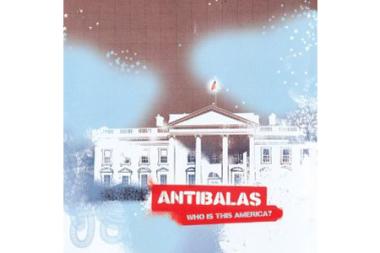Antibalas
Who Is This America?
(Ropeadope)
Antibalas (Spanish for “bullet proof”) seem poised to leave the Brooklyn underground scene for greener pastures, riding a wave of critical acclaim from their musical involvement in the Broadway musical Fela! It seems appropriate that Ropeadope re-release the band’s 2004 funk album Who Is This America? to reach out to their new audience. One of the few studio efforts that captures the dynamism of Antibalas’ stage show, Who Is This America? is a chanting, pounding slice of Afrobeat by way of Brooklyn. Fourteen pieces strong, the lineup features a mighty horn section that alternately skanks and struts, and turns the nearly 20-minute long “Sister” into a jam that would not be out of place on an Ornette Coleman album. “Money Talks” is a previously unreleased bonus track added to the CD, an instrumental that smacks of New Orleans voodoo. —Jeffrey Siegel
Magic Kids
Memphis
(True Panther Sounds)
Named for the group’s hometown, the debut release by these Tennessee youngsters exhibits an unabashed love for the history of pop. Most tracks feature harmonious layered vocals backed by orchestral strings and melodies that echo Brian Wilson at the height of his powers. The drums create a strong rhythmic foundation, but never take over completely. While never quite creating a true wall of sound, the mix evidences an appreciation for sophisticated arrangements. Horns, piano and clever synth work accentuate the wide-eyed sincerity of the songs’ lyrics. Lines about kisses like candy, dates at the drive-in and going steady practically scream teenage innocence. In fact, there’s so much to get lost in that it’s easy to forget the record was recorded in the present day; when distorted guitars finally show up on “Skateland,” the effect is almost jarring. —Michael Cimaomo
Various Artists
Dhamma Gita: Music of Young Practitioners Inspired by the Dhamma
(More Than Sound)
This CD is part of a larger multimedia venture by a production/publishing entity that’s committed to advancing Buddhist practice. Some contributors (Dave Smith and Heather Maloney) have local roots. Offerings by all are mostly interesting and span rock, folk, jazz, country, hip-hop and ambient psychedelia, though a couple tracks (like Michaela Lucas’ “Faith”) are almost unlistenable in their unfortunate resemblance to saccharine styles of spiritual music such as contemporary Christian. Despite most artists’ listing of credentials like Yale graduate degrees and TV/film credits, the guy who seems to really get the premise has a bio that reads simply, “Travis Callison is one and the same as the highest, most divine aspect of all creation. He currently resides within, and as, all that is. He has no future plans.” Right on, Travis. —Tom Sturm



